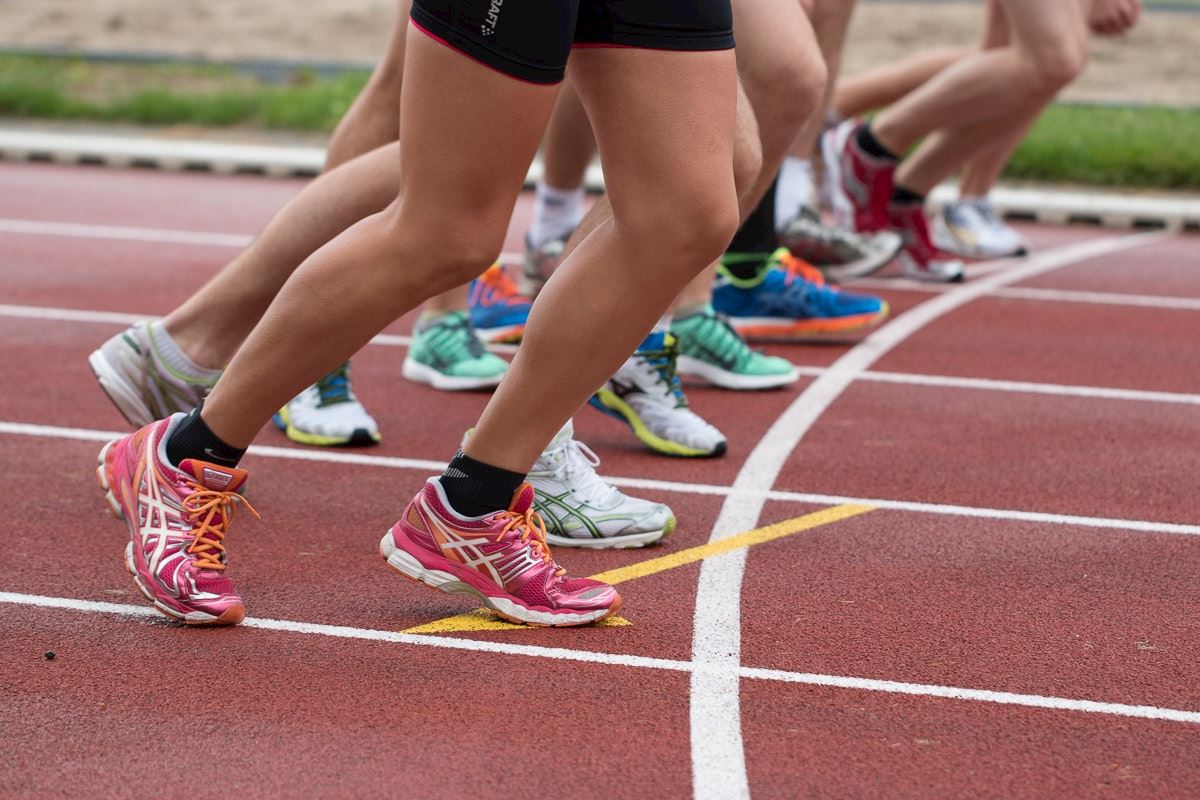Not A One Shoe Fits All Proposition - Choosing The Right Marathon Shoe Is Easier Said Than Done
There is nothing that is more important to a good run than a good pair of running shoes. The problem with running shoes is that they have to be broken in enough, but not worn out. It seems that by the time that you wear them in, they are already on the way out of treads.
The secret to the best marathon running shoes is finding the one that suits you best. Every runner is different, so trying to find a shoe based on reviews is nearly impossible. To find the best running shoes to tackle any marathon, you have first to know what type of runner you are and what kind of mechanics you have when running.
Every runner runs different. Just like a fingerprint, we all have our own footprint on the pavement. Whether you are a pronator, under or an over-pronator, or someone who runs in neutral, finding the right shoe revolves around knowing your toe and heel strike. It is crucial that you find a shoe that has good stability, especially for when your feet and legs start to get tired, but you also want to have the right amount of natural feel. Have I confused you enough yet?
“There’s no such thing as a costume change mid-marathon”
What type of terrain are you running?
Not only do you have to analyze the way that you run, but you also have to give consideration to the type of race you are running. If you are doing a trail run, you are going to need more traction than if you are hitting a road race. Marathon running shoes are sectioned into different types such as trail or road running. That is important because you are going to need more flat surface and stability material when tackling rough terrain.
The importance of thinking ahead
When you buy a pair of running shoes, make sure to buy two. You don’t want to start a marathon with a new pair of shoes, but you also don't to run in whatever shoes you have been training in. If you buy two pairs of the same shoes, you can break one pair in perfectly and wear the other one out while in training mode.
There is a reason why some shoes are more popular than others and it isn’t just advertising
The running shoe that you choose for a marathon is no different than the running shoe that you buy for training. It has to withstand a lot of mileage. There is a reason that there are very few popular running shoe manufacturers. It is because they know what they are doing. Putting out a lot of money in research and listening to the opinions of marathon runners worldwide, they make their shoes accommodate athletes not just to look nice.
Each brand caters to a different clientele. Saucony is known for hardcore runners and stability, Nike caters to a more “broad” runner while Asics is a brand that delivers lightweight running shoes for those who don’t like to be bogged down with a heavy weighted shoe. Any runner knows that when they put on the right running shoe, there is a brain connection. It isn't just about the feet, but the security that you feel mentally when you have the correct pair of shoes.
Whether it is cushioning, stability, comfort or special considerations to the type of runner you are personally, finding the right shoe is going to take some trial and error. The problem is that if you find that you like a shoe brand and style, you have to buy a second pair, or possibly even several. The shoe industry changes their products at lightening speed. Always trying to improve on a shoe style, they rarely leave well enough alone. If you don’t buy a bunch of the same pairs when they work, you could spend every couple of months trying out new shoes and looking for the perfect pair. That could slow you down considerably, cause blisters, or even put wear and tear on your muscles in different ways. Consistency is vital when you are looking for shoes to train in and to run a marathon.
Running specialty stores may be your best bet
To find the best fit, go to a store that specializes in running. It is well worth the cost. Professionals who work at running stores are often able to analyze your heal strike and make recommendations about which are the best shoes for you. They also have the knowledge from talking to various runners about which shoes are the best for long distance, versus which are better suited for quick speeds or 5Ks.
The type of shoe that you need to complete a marathon is going to be different from ones that you will need to run fast, run hurdles, or run relays. Make sure that when you do find the one that “fits” you make a conscious effort to get a bunch of them to last you until at least marathon season is over. Estimate that each shoe is only good for about 200 miles and that will tell you how many you will need to get you through your targeted marathon.

